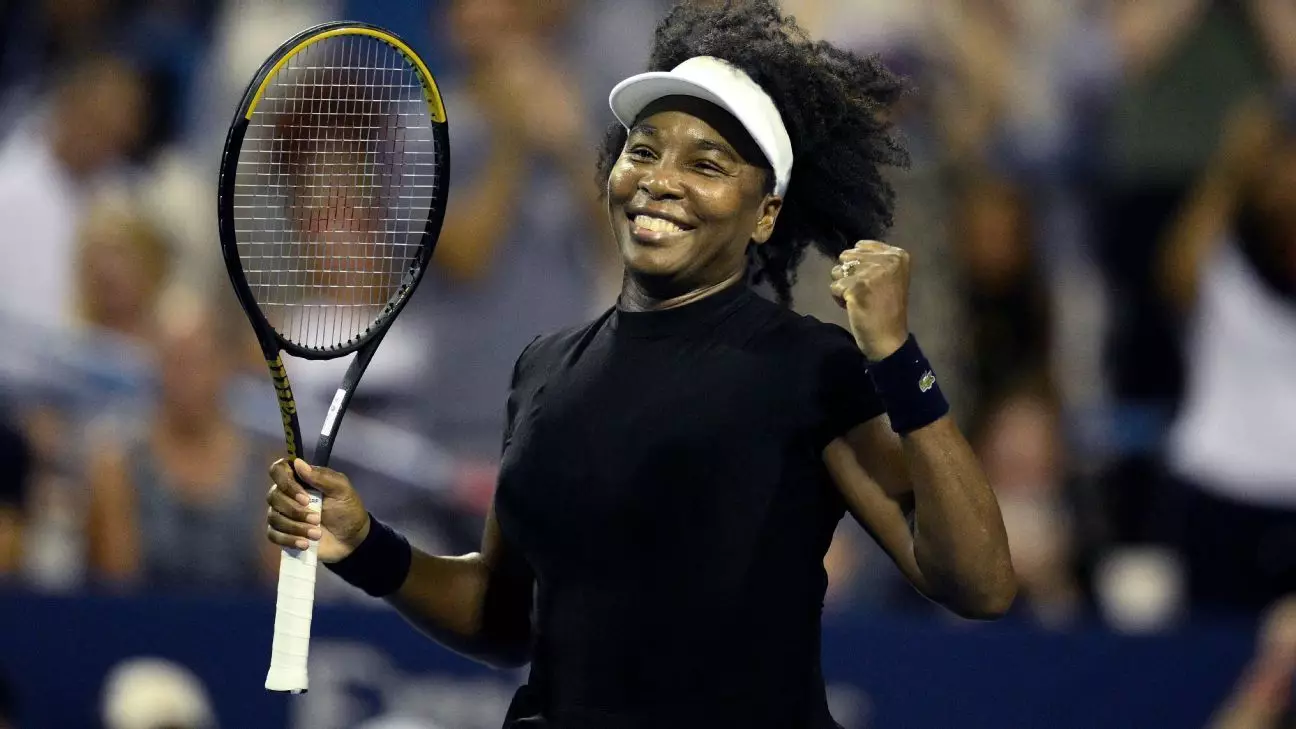Venus Williams’ recent victory at the DC Open is not just a victory; it’s a bold statement against the societal ageist narrative that dreams should end as one hits a certain milestone. At 45, Williams defied the grim expectation that athletic prowess diminishes irreversibly with age. Her triumph challenges the superficial standards that equate aging with decline, especially in a sport as physically demanding and youth-centered as tennis. While critics might dismiss her as a relic clinging to past glory, her performance underlines that resilience, dedication, and a relentless love for the game can keep a competitor relevant far longer than societal blueprints suggest.
This match, for Williams, was more than a scoreboard win—it was an act of defiance against the dismissive notion that she is too old to compete at the professional level. Williams’ journey back from health setbacks, including surgery for uterine fibroids, underscores a broader societal failure: underestimating the capacity of individuals—particularly women—to reinvent themselves, to challenge stereotypes, and to contribute passionately regardless of age. Her determination reaffirms that society’s greatest limitations often exist within the confines of outdated beliefs, not in the capabilities of those willing to push past them.
Reflections of Change and Inequality
The fact that Williams was supported by a stadium full of fans, and that her comeback drew headlines, highlights an essential truth: changing societal attitudes require persistent effort and visible success stories. Her victory becomes a symbol of broader issues—particularly gender inequality and the persistent undervaluing of older women’s contributions. The media’s focus on her age and health reveals uncomfortable truths about how society views women’s worth as they age, especially in public spheres traditionally dominated by youth, beauty, and physical stamina.
Williams’ story also prompts a critical examination of the tennis world itself, and sports more generally, where the age ceiling remains an invisible barrier often more constraining than physicality. Her success questions whether the sport’s structural support systems are truly inclusive or whether they perpetuate harmful stereotypes about aging athletes. Moreover, her presence on court challenges the notion that athletic excellence is a fleeting phenomenon reserved for the young, pushing us towards a culture that values experience, resilience, and storylines of perseverance.
Power of Representation and Personal Agency
While some may view Williams’ resurgence as a nostalgic return, it is fundamentally a statement of agency. Her desire to compete, to win, and to inspire others who feel marginalized or dismissed by ageism is undeniable. Her performance showcases that battling against societal expectations requires more than physical strength; it demands a fierce mental attitude and a refusal to accept societal limitations.
In a landscape where youth often dominates headlines, Williams’ gritty, unyielding approach echoes the core liberal ideal of personal agency—that individuals should not be defined or limited by superficial factors like age, gender, or appearance. Her journey exemplifies the importance of societal support structures that enable older athletes, women, and marginalized groups to pursue their passions without fear of judgment or exclusion. Her victory becomes a reminder that perseverance, rather than societal stereotypes, should be the true measure of human potential.
A Challenge to the Status Quo
This remarkable comeback doesn’t merely celebrate individual resilience; it implicitly questions the broader cultural narratives that often dismiss aging as a problem to be fixed or ignored. Williams’ performance urges us to reconsider the rigid timelines society imposes—whether on careers, relationships, or personal ambitions. Her success at 45 beckons a shift towards appreciating the cumulative wisdom and resilience that come with age, rather than dismissing them as liabilities.
In a society that often valorizes perpetual youth, Williams’ story stands as a testament to the power of embracing one’s history, struggles, and all the valuable lessons they bring. Her victory is a challenge to ageist stereotypes embedded within sports, media, and cultural assumptions—an exciting call to foster inclusivity, respect, and recognition for all ages.


Leave a Reply